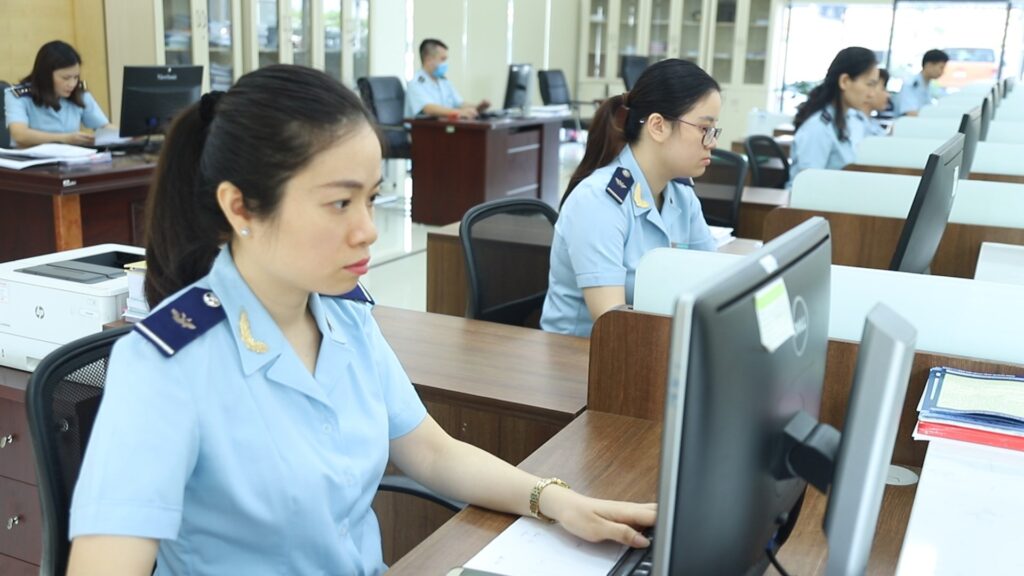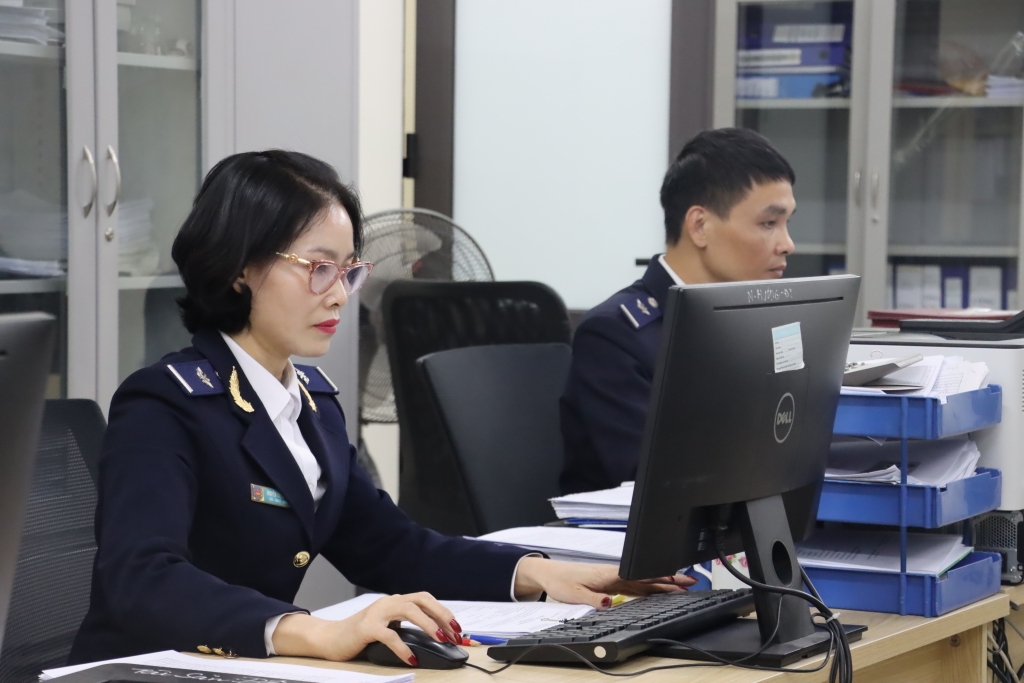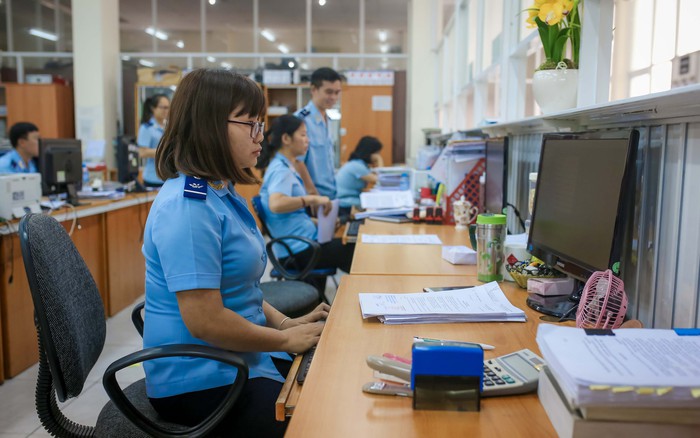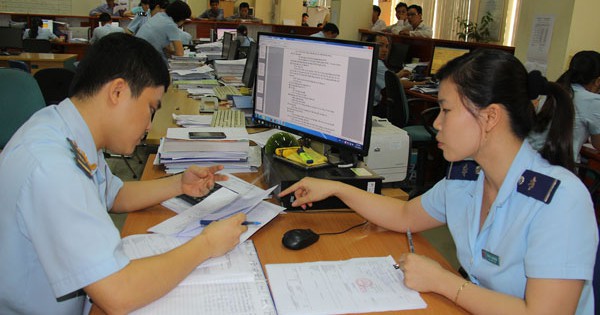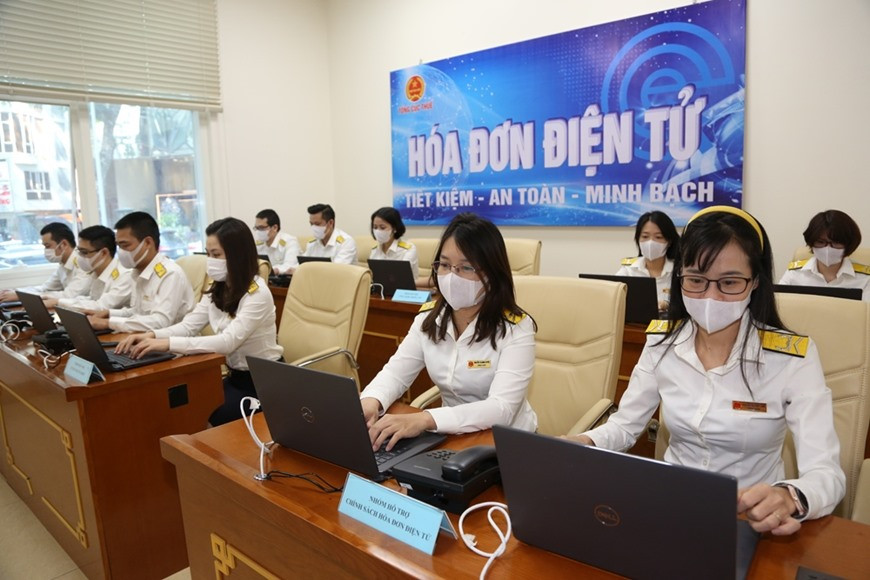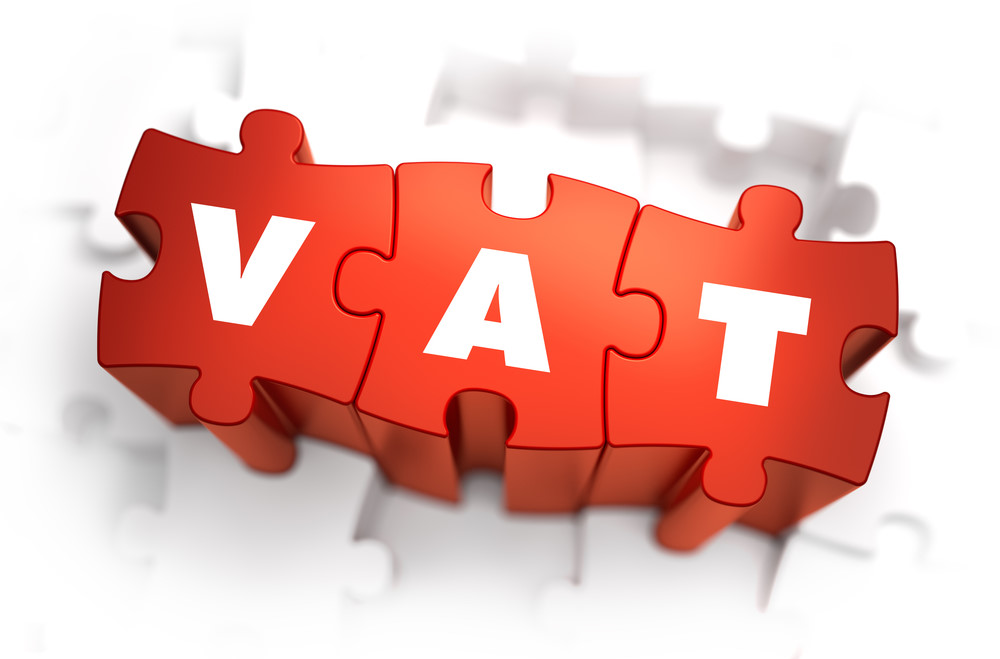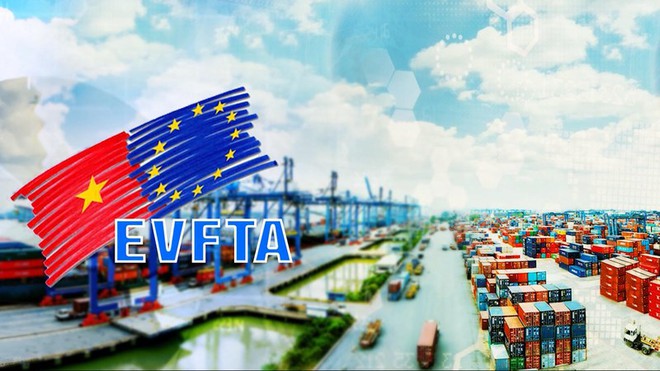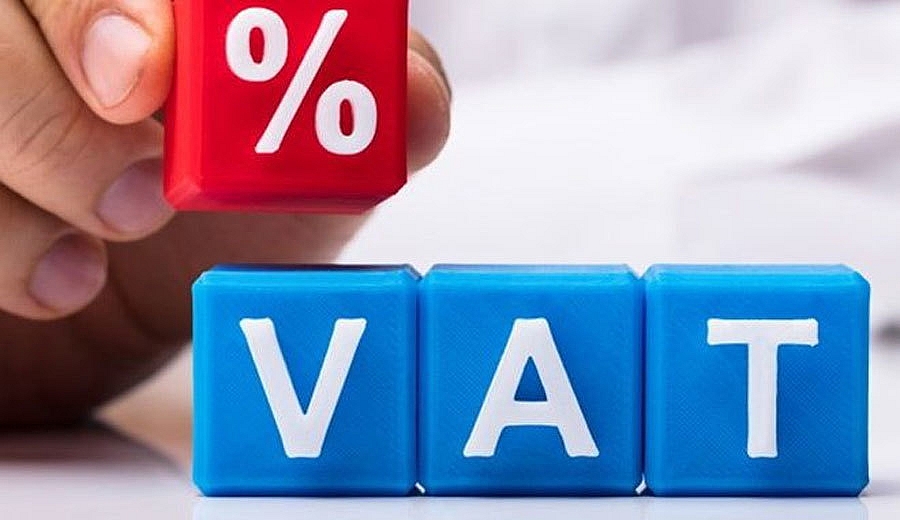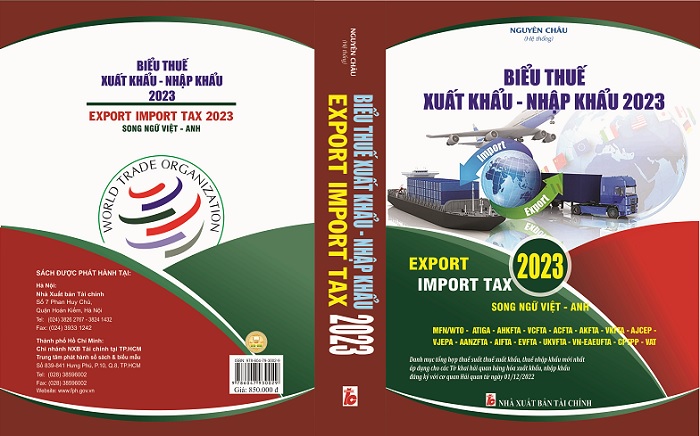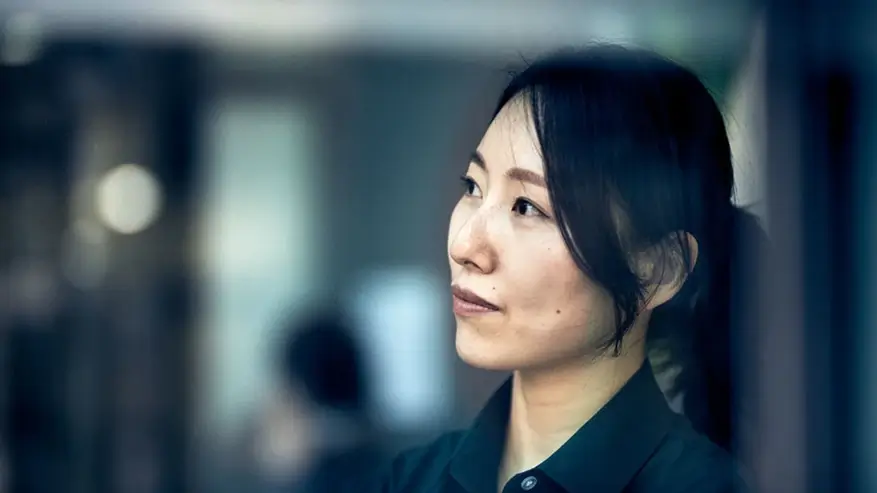SPECIAL CONSUMPTION TAX
1. Subjects subject to special consumption tax
According to Article 2 of the Law on Special Consumption Tax 2008, amended and supplemented in 2016, subjects subject to special consumption tax include: 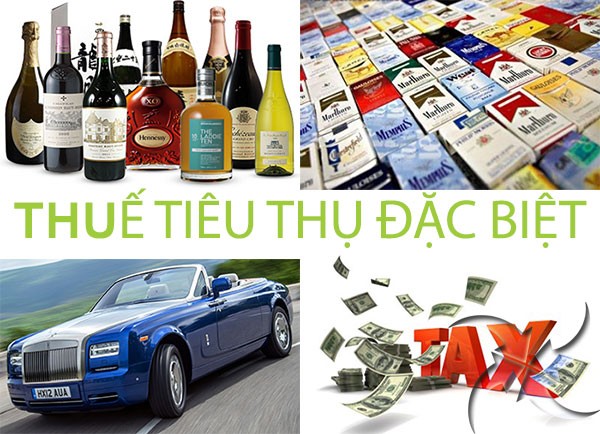
- Goods:
+ Cigarettes, cigars and other products from tobacco plants used for smoking, snorting, chewing, sniffing and sucking;
+ Wine;
+ Beer;
+ Cars with less than 24 seats, including cars carrying both passengers and cargo with two or more rows of seats, with a fixed partition design between the passenger compartment and the cargo compartment;
+ Two-wheeled motorbikes and three-wheeled motorbikes with cylinder capacity over 125cm3;
+ Airplanes and yachts;
+ Gasoline of all kinds;
+ Air conditioner capacity of 90,000 BTU or less;
+ Cards;
+ Votive paper and votive goods.
- Service:
+ Dance hall business;
+ Massage and karaoke business;
+ Casino business; electronic games with prizes include games with jackpot machines, slot machines and similar machines;
+ Betting business;
+ Golf business includes selling membership cards and golf tickets;
+ Lottery business.
2. Basis and method of special consumption tax
Amount of special sales tax payable = Special sales tax calculation price x Special sales tax rate
The excise tax calculation price of goods and services is the selling price of goods and the service supply price of the production and business establishment without special excise tax, environmental protection tax (if any) and value added tax. are specifically defined as follows:
2.1. For domestically produced goods and imported goods is the price sold by the manufacturer or importer. In case the selling price of the manufacturing facility or importer is not according to the normal transaction price on the market, the tax authority shall assess tax according to the provisions of the Law on Tax Administration. The special consumption tax calculation price is determined as follows:
| PRICE CALCULATED WITH SPECIAL SET TAX | = | The selling price does not include VAT | – | Environmental Protection Tax (if any) |
| 1 + Special consumption tax rate | ||||
In which: the selling price without value-added tax is determined according to the provisions of law on value-added tax, environmental protection tax is determined according to the provisions of law on environmental protection tax.
- a) In case a manufacturing facility or an importer of goods subject to special consumption tax sells goods through affiliated establishments with dependent accounting, the price used as a basis for calculating special consumption tax is the price recorded by the establishment. Payment depends on sales. If a manufacturer or importer sells goods through an agent at the price set by the manufacturer or importer and only receives a commission, the selling price will be the basis for determining the price for calculating special consumption tax. is the price set by the manufacturer or importer without deducting commission.
- b) In case goods subject to special consumption tax are sold to commercial business establishments that have a parent company, subsidiary company or subsidiaries in the same parent company as the production establishment If an importer or commercial business establishment is an establishment with an associated relationship, the selling price used as a basis for determining the special consumption tax calculation price must not be lower than the rate of 7% compared to the average price in the month. of commercial business establishments that buy directly from production establishments and import establishments that sell.
In case a production facility or import facility establishes many intermediary commercial establishments that are related to parent companies, subsidiaries, or subsidiaries within the same parent company or have an affiliated relationship, the selling price shall be As a basis for determining the special consumption tax calculation price, it must not be lower than the ratio of 7% compared to the average price in the month that these commercial establishments sell to commercial business establishments that do not have parent company or subsidiary relationships. subsidiary, or subsidiaries within the same parent company, or have an affiliated relationship with a production facility or import facility. For automobiles, the average selling price of commercial businesses for comparison is the car selling price excluding options for equipment and spare parts that commercial businesses install at the request of the customer. client.
Manufacturing establishments, import establishments and commercial business establishments have an affiliated relationship according to the provisions of this point when: An enterprise directly or indirectly holds at least 20% of the owner's investment capital of the other enterprise.
In case the selling price used as a basis for determining the special consumption tax price of a manufacturing facility or importer of goods subject to special consumption tax is lower than the ratio of 7% compared to the average price of the commercial business establishment. When sold, the price for calculating special consumption tax is the price set by the tax authority according to the provisions of law on tax administration.
2.2. For imported goods at the import stage, the special consumption tax calculation price is determined as follows:
Special consumption tax calculation price = Import tax calculation price + Import tax.
The price for calculating import tax is determined according to the provisions of the law on export tax and import tax. In case imported goods are exempted or reduced from import tax, the tax price does not include the exempted or reduced import tax amount.
3. Cases not subject to Special Consumption Tax
3.1. Goods directly exported by manufacturing or processing establishments or sold or entrusted to other business establishments for export, including:
- a) Goods directly exported abroad by manufacturing and processing establishments include goods sold and processed to export processing enterprises, except for cars with less than 24 seats sold to export processing enterprises.
Establishments that have goods not subject to special consumption tax specified at this point must have documents proving that the goods have actually been exported, specifically as follows:
– Sales contract or processing contract for foreign countries.
– Invoice for sale of exported goods or return of goods, payment for processing.
– Export goods declaration.
– Payment documents via bank.
Payment via bank is the transfer of money from the importer's account to an account in the name of the exporter opened at a bank according to payment methods in accordance with the agreement in the contract and the bank's regulations. Payment voucher is a credit note from the exporter's bank about the amount received from the importer's bank account. In case of late payment, there must be an agreement recorded in the export contract. By the payment deadline, the business establishment must have payment documents via bank. In case of export entrustment, the party receiving the export entrustment must make payment to the foreign country via bank.
- b) Facilities producing goods subject to special consumption tax if temporarily exported and re-imported under a temporary export or re-import license, do not have to pay export tax or import tax according to the prescribed regime within the time limit. When re-importing, you do not have to pay special sales tax, but when the production facility sells these goods, you must pay special sales tax.
- c) Goods sold by manufacturing establishments or entrusted to export business establishments for export under economic contracts.
Production establishments whose goods are not subject to special consumption tax specified in this Point must have documents proving that the goods have actually been exported as follows:
– Goods purchase and sale contract for export or export entrustment contract in case of export entrustment between a production facility and an export business facility.
– Sales invoices, delivery of export entrusted goods.
– Minutes of liquidation (full or partial liquidation) of the contract to sell goods for export, minutes of liquidation of the export entrustment contract clearly show the following contents:
Name, quantity, type, item, and selling price of the goods actually exported; payments; the amount, number, and date of payment documents for exported goods via the foreign buyer's bank to the export facility; amount, number, and date of payment documents between the manufacturing facility and the exporter or export entrusted facility; number and date of the export contract, copy of the Customs declaration for exported goods.
For goods that export establishments purchase or accept export entrustment for export but do not export but consume domestically, export business establishments must declare and pay special consumption tax on these goods when consumed. (sell in country.
- d) Goods brought abroad for sale at foreign fairs and exhibitions.
Establishments that have goods brought abroad for sale at fairs and exhibitions must have all the following procedures:
– Invitation or registration letter to participate in foreign fairs and exhibitions.
– Export goods declaration with customs authority's confirmation of exported goods.
– List of goods sold at exhibitions.
– Payment documents for goods sold at fairs and exhibitions. In case of cash sales with a value above the prescribed level, it must be declared to the Customs office and have documents to pay money to the bank according to the regulations. current regulations.
3.2. Imported goods in the following cases:
a) Humanitarian aid and non-refundable aid; Gifts and gifts include:
– Humanitarian aid and non-refundable aid, including goods imported with non-refundable aid approved by competent authorities; humanitarian aid and emergency relief to overcome the consequences of war, natural disasters and epidemics.
– Gifts from organizations and individuals abroad to state agencies, political organizations, socio-political organizations, political-social-professional organizations, social organizations, social-professional organizations, people's armed units.
– Gifts and gifts for individuals in Vietnam according to the norms prescribed by law.
b) Goods in transit or on the way through Vietnam's border gates and borders, and goods transshipped, including:
– Goods are transported from the exporting country to the importing country through Vietnam border gates but do not go through import procedures into Vietnam and do not go through export procedures out of Vietnam.
– Goods are transported from the exporting country to the importing country through the Vietnamese border gate and put into a bonded warehouse, without import procedures into Vietnam and without export procedures out of Vietnam.
– Goods in transit or transit through Vietnam's border gates or borders on the basis of the Agreement signed between the Government of Vietnam and a foreign Government or between an agency or representative authorized by the Government of Vietnam and the foreign Government. outside authorization.
– Goods are transported from the exporting country to the importing country without going through Vietnam border gates.
c) Goods temporarily imported and re-exported, if actually re-exported within the time limit of not having to pay import tax according to the provisions of law on export tax and import tax, are not required to pay special sales tax corresponding to the amount of goods. actually re-exported.
If goods are temporarily exported or re-imported, if actually re-imported within the time limit of not having to pay export tax according to the provisions of law on export tax and import tax, then no special sales tax corresponding to the actual amount of goods must be paid. re-import.
d) Goods temporarily imported to attend fairs and exhibitions, if actually re-exported within the time limit, must not pay import tax according to the prescribed regime.
At the end of the fair or exhibition period, if organizations or individuals do not re-export temporarily imported goods, they must declare and pay special consumption tax; If organizations or individuals do not declare and are inspected and discovered, in addition to collecting special sales tax, they will also be fined according to the provisions of law.
e) Belongings of foreign organizations and individuals according to diplomatic immunity standards according to the provisions of law on diplomatic immunity.
g) Carry-on goods within the import duty-free luggage standards of Vietnamese individuals and foreigners when entering or exiting through Vietnam's border gates.
h) Imported goods for tax-free sale at duty-free shops according to the provisions of law.
3.3. Goods imported from abroad into non-tariff zones, goods from the domestic market sold into non-tariff zones and only used in non-tariff zones, goods traded between non-tariff zones, except two The following types of goods: goods brought into an area that applies the status of a non-tariff zone with a population, without hard fences, and passenger cars with less than 24 seats.
Documents, procedures and authority to resolve non-collection of special sales tax for the cases specified in Clauses 2 and 3 of this Article are implemented as regulations on resolution of non-collection of taxes and exemption of import tax according to the provisions of the Law. Law on export tax and import tax.
Establishments that import goods that are not subject to excise tax upon import according to the provisions of clauses 2 and 3 of this Article, if used for other purposes, must declare and pay excise tax at the import stage with the import authority. Customs according to the guidance of the Ministry of Finance on customs procedures; customs supervision inspection; export tax, import tax and tax administration for exported and imported goods.
3.4. Aircraft and yachts used for the purpose of transporting goods and passengers, tourism business and aircraft used for security and defense purposes.
In cases where an aircraft or yacht is not subject to special sales tax but is then not used for the purpose of transporting goods and passengers, tourism business or security and defense purposes, it must be subject to special sales tax.
Business establishments that have imported aircraft and yachts converted to the above purposes must declare and pay special consumption tax to the customs authority according to the guidance of the Ministry of Finance on customs procedures; customs supervision inspection; export tax, import tax and tax administration for exported and imported goods.
Business establishments that have domestically produced aircraft or yachts converted to the above purposes must declare and pay special consumption tax according to the remaining value after deducting the depreciated value according to regulations with the directly managing tax agency. next.
3.5. For cars specified in Clause 4, Article 3 of the Tax Law Special consumption is vehicles designed by the manufacturer used as ambulances, prisoner transport vehicles, and funeral vehicles; vehicle inspection, radio frequency control; armored vehicles launching ladders; mobile television vehicle; The vehicle is designed with both seating and standing room to carry 24 people or more; Cars running in amusement, entertainment and sports areas that are not registered for circulation, do not participate in traffic and specialized vehicles, vehicles that are not registered for circulation, do not participate in traffic coordinated by the Ministry of Finance with relevant ministries and agencies for specific instructions.
Business establishments that import cars designed only for use in amusement, entertainment, and sports areas that are not registered for circulation and do not participate in traffic are not subject to special consumption tax mentioned in this Clause. Submit to the customs authority where the import declaration is opened the following documents and procedures:
– A copy of the Business Registration Certificate proving that the importer has the function of operating an amusement, entertainment, and sports area (signed and stamped by the importer).
– The import business establishment clearly states on the Import Goods Declaration the content: "cars designed and manufactured for use only in amusement, entertainment, and sports areas are not registered for circulation and are not traffic". The import facility must be responsible for the accuracy of import records.
The customs authority where the import business establishment registers to open the Import Goods Declaration inspects the goods and does not collect excise tax on the above items, and does not issue the Declaration confirming the origin of imported vehicles to the business establishment. import.
In case a car designed to be used only in amusement parks, entertainment, and sports areas is not registered for circulation and does not participate in traffic and is not subject to special consumption tax, the importing facility has completed import procedures as instructed. referred to in this Clause with the customs authority, if the purpose of use is changed compared to when imported, is not used in amusement, entertainment or sports areas and is a type of car subject to special consumption tax, the customs authority will The import department must declare and pay special consumption tax to the customs authority according to the guidance of the Ministry of Finance on customs procedures; customs supervision inspection; export tax, import tax and tax administration for exported and imported goods. In case the import facility does not declare to the customs authority where import procedures are carried out to pay special consumption tax due to a change in purpose of use compared to when importing, the import facility will be fined according to the provisions of the Law. Tax administration and implementation guidance documents.
3.6. Air conditioners with a capacity of 90,000 BTU or less, according to the manufacturer's design, are only intended to be installed on vehicles, including cars, railway carriages, ships, boats, and airplanes.
In case of import business establishments; Entrust the import of central air conditioning systems over 90,000 BTU or import business establishments sign contracts with domestic equipment installation contractors to provide central air conditioning systems over 90,000 BTU; Delivery depends on the construction progress (this air conditioning system is imported in many times, many trips) so as not to have to pay special consumption tax for each import of details of imported equipment. such as a hot or cold unit, the documents that need to be presented to the customs authority include:
– Import contract (in case of import entrustment, there must be an additional import entrustment contract) or sales contract (original or copy with stamp of the importing enterprise) of central air conditioning system with the supplier. domestic construction contractors; The contract must state that this is a synchronous equipment with a capacity of over 90,000 BTU imported in complete units according to the manufacturer's standards, accompanied by a list of the quantity of imported equipment's details.
– Connection diagram of the central air conditioning system certified by the importer and construction contractor (in case there is a construction contractor).
– Certificate of inspection on the capacity and synchronization of imported equipment, and separate parts (hot and cold units) or groups of separate parts of the equipment cannot operate independently due to competent appraisal agency according to the provisions of applicable law.
In case each separate part or several separate parts can be installed into a complete air conditioner, with a capacity of 90,000 BTU or less and operate independently without needing to be connected to the system, each of these parts still subject to special sales tax.
– A commitment from the import business establishment to use imported goods for the right purpose and to be responsible before the law for their commitment.
Based on the documents presented by the business establishment, the customs authority prepares a reconciliation monitoring sheet as attached in Appendix I. Circular 195/2015/TT-BTC to monitor management.



